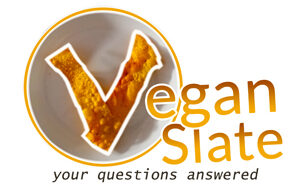I’ve noticed a big uptick around this subject in the Twitterverse recently with many claiming veganism is anti indigenous. I’d never really engaged with this narrative before but even a cursory Googling sent me down a deep educational rabbit hole. Enough people think it’s worth addressing and I’d rather dive in than be part of the problem … so here goes!
Veganism Is Anti Indigenous – How So?
Many commentators on this believe veganism is anti indigenous because privileged, white vegans ignore the fact that many indigenous communities are marginalised and live in remote areas with little or no access to vegan supplies … and this is a valid argument.
What isn’t valid is using the very same argument to justify your consumption of meat and dairy when you live in a place where there is abundant access to fresh fruit, vegetables and vegan products.
… and that is just one of the excellent points raised by ‘VegCeps Activism’ in his video:
(I love this guy. He just tells it like it is; no frills)
Sidenote: I am uncomfortable using acronyms like ‘BIPOC’ (Black, Indigenous and People Of Colour) so for the purposes of this article, when I use the word indigenous I am also referring to those peoples who were trafficked from Africa and elsewhere as slaves. Indigenous customs travelled with these people and are still strong today.
‘White Veganism’ – A Modern Day Privilege?
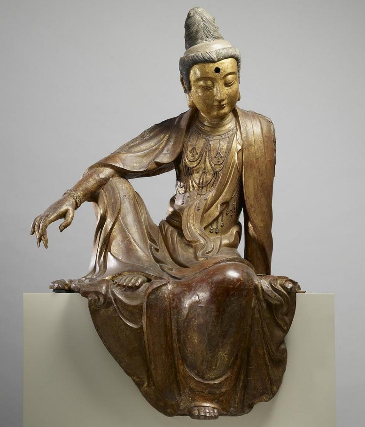 No matter how enlightened you think you are, it’s next to impossible for you, as a white-skinned vegan living in the Western world, to pass comment or judgement on the lives and experiences of indigenous people.
No matter how enlightened you think you are, it’s next to impossible for you, as a white-skinned vegan living in the Western world, to pass comment or judgement on the lives and experiences of indigenous people.
Many of these communities are still living as close to their ancestral past as they can.
You can be as empathetic as you like but this is a really difficult thing to grasp and bearing in mind the history of European colonialism, the subject is about as sensitive as it gets.
Unless your ancestors actually lived through the nightmare of colonial rule and the blood of white supremacist oppression courses through your veins, you have to accept you are supremely unqualified to lay down the vegan law to the indigenous and the descendants of enslaved people.
The very first step for white vegans is to accept that modern veganism comes embedded with a certain level of privilege.
 But, by the same token, we need to be aware of those who attempt to guilt trip white vegans into silence by playing the anti indigenous card.
But, by the same token, we need to be aware of those who attempt to guilt trip white vegans into silence by playing the anti indigenous card.
As a British citizen of Celtic descent it’s very, very easy for me to follow a vegan way of life. Living in a medium sized town in South East England, I am no more than ten minutes away from all the vegan goodies you could ever desire.
… and there are thousands of towns just like mine encircling the major cities in the UK.
Am I privileged to live here? Bloody right I am.
But guess what? There are plenty of indigenous people who have the same level of access to vegan products as I do and you can find these people online using the ‘white veganism’ argument to justify their continued consumption of meat.
Usually, those people are just in it for the clicks and it’s important they are called out, which ‘VegCeps Activism’ does so eloquently in the above video!
To Be Vegan Is Not a New Phenomenon
What many new vegans fail to understand is the philosophy behind modern veganism can be traced back thousands of years.
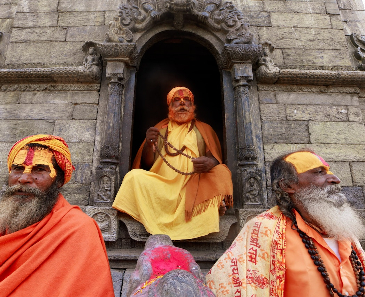 It is only the word ‘Veganism’ which was coined in the 40’s … the ideas and practices of non-violence were an integral part of some African and Indian cultures as far back as 4000 years ago.
It is only the word ‘Veganism’ which was coined in the 40’s … the ideas and practices of non-violence were an integral part of some African and Indian cultures as far back as 4000 years ago.
Related: “Why Do Jains Not Eat Meat?”
So it’s easy to see how many indigenous communities are offended when some suburban, white, middle-class vegan starts getting on their high-horse, throwing around accusations of animal oppression … or worse.
Veganism is about respecting all living things we share this planet with.
… and again, this is not a new philosophy.
Native American civilisations, for example, have this same respect for the natural world and they’ve lived this way for many thousands of years.
They have always existed in harmony with their surroundings and when it is necessary to take the life of an animal, blessings and rituals are carried out in honour of that unique soul.
It’s a mindset which is about as far removed from modern, intensive agricultural practices as you can get.
I mean … can you imagine trying to adequately honour the 1 million souls who will die every year in this pig slaughter high-rise hell?
Has Veganism Been Appropriated By White People?
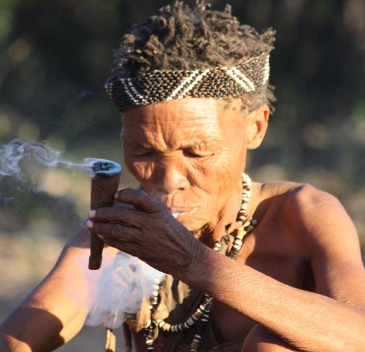 This is such a challenging subject to deal with and I barely have the scope to scratch the surface in this article.
This is such a challenging subject to deal with and I barely have the scope to scratch the surface in this article.
Having immersed myself for a couple of weeks in content from indigenous commentators, I feel the need to address the uncomfortable truth – the elephant in the room.
I’m actually slightly embarrassed at myself for previously brushing off these points of view as a non-issue for vegans.
… but I’m not guilt-tripped.
It just shows how easy it is to become blinkered when you’re so deep into a social movement like veganism. In the past I’ve lazily cited Donald Watson as the founder of veganism in 1944 … in reality, he just came up with a new word.
But, as my favourite talk radio host says, “what’s the point in having a mind if you can’t change it?” … wise words indeed.
As I mentioned above, white people did not invent veganism in the 40’s. We don’t have the right to shout at and abuse indigenous people for hunting a seal, or a deer or whatever.
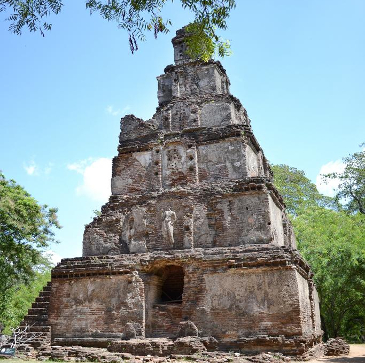 Those ancient tribes had more respect for the animal kingdom than 98% of modern consumers. Many call themselves ‘animal lovers’ these days but they have no idea what it means to truly love ALL animals.
Those ancient tribes had more respect for the animal kingdom than 98% of modern consumers. Many call themselves ‘animal lovers’ these days but they have no idea what it means to truly love ALL animals.
Yes, in our vegan utopia there would be easy access to vegan food for everyone. In the real world, we’re a long way away from that ideal.
White vegans living in suburban bliss have no place criticising indigenous people who are clinging to their ancestral past while modern humans destroy their way of life.
A ‘holier than thou’ mindset will just reinforce the (incorrect) belief that white people have appropriated vegan principles with little regard for the origins of this compassionate philosophy.
But, to be clear, most white vegans have not consciously appropriated veganism. We have chosen this way of life for one reason only … to take a stand and oppose animal oppression.
We all need to be careful not to lose sight of that.
We’re Out Of Balance With Nature
Industrial agricultural processes which have largely originated from white dominated, Western world ‘civilisations’ are responsible for a massive destabilisation of the natural world.
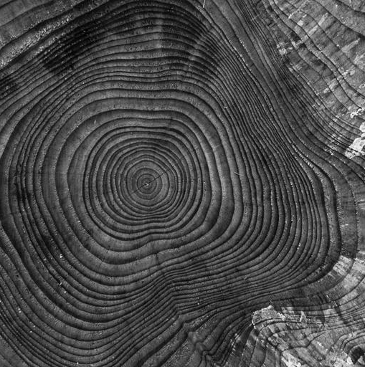 Vast areas of the rainforest are turned over to soya production and other crops.
Vast areas of the rainforest are turned over to soya production and other crops.
In fact, on this point I must push back.
One of the articles I read during my research claimed the rapid rise of veganism is driving the conversion of virgin rainforest to intensive soya production.
This is not true.
75 – 80% of soya grown in cleared rainforest regions ends up in animal feed. I have cited reliable sources for this in my article: “How Many Trees Do You Save By Not Eating Meat?”
So to be very clear, it is the insatiable demand for meat and dairy which is driving much of the destruction of our beautiful rainforests.
We were never supposed to be consuming such vast quantities of meat, milk and cheese.
Again, indigenous people are aware of this need to remain in harmony with nature. Killing another living being was never an insignificant thing. Hence the important rituals.
I’d imagine they find the killing of 80 billion land animals annually to satisfy affluent taste buds profoundly abhorrent.
Ironically enough, so do vegans!
There is no respect of the natural world in the agricultural practices modern humans are engaged in. No rituals involved. No acceptance of the divine importance of all life.
It’s just a bucket of chicken wings in front of the football. No connection to nature whatsoever.
Vegans & Indigenous People: On The Same Page?
I mentioned irony above and for me this is the crux of the matter.
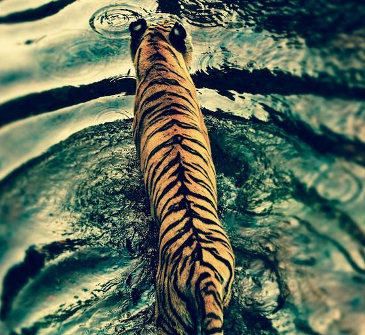 Vegans choose a way of life out of respect for the animal kingdom. Indigenous peoples have this respect hard coded into their very existence.
Vegans choose a way of life out of respect for the animal kingdom. Indigenous peoples have this respect hard coded into their very existence.
We’re really not a million miles away from each other, philosophically.
Yet whether it is out of ignorance or misinformation or whatever, many modern vegans attack indigenous communities for behaviour they perceive as animal cruelty.
In reality, it is nothing of the sort.
Let alone the fact that in many remote communities it is completely impossible to survive as a vegan anyway. These communities have to rely on traditional methods to feed their families.
… and in reality, most rational vegans accept this.
For the inherently privileged, average white vegan we have to subscribe to the notion of harm reduction as opposed to elimination.
Veganism has always been about doing the best you can as far as is practical and possible.
For an Inuit family it is neither practical nor possible to live on plants alone and vegans should not be attacking these people because they kill the odd polar bear.
There is absolutely no comparison to modern factory farming.
Understanding, Acceptance & Realism
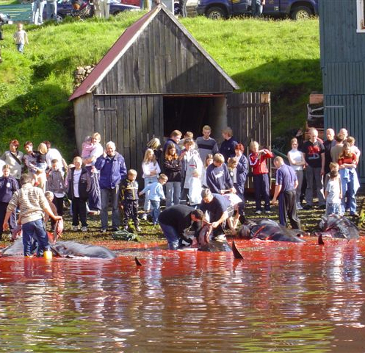 At 1300 words into the article we have still barely lifted the lid on this can of worms!
At 1300 words into the article we have still barely lifted the lid on this can of worms!
There are so many nuances and other considerations. For example, what about the ‘Grind’ in the Faroe Islands? It could be argued this is an ancestral activity.
It’s a traditional event dating back centuries (with much older roots), seeing the mass slaughter of hundreds of pilot whales in shallow waters near the beach.
The animals are herded ,en masse, into shore using many boats to encircle them. Men and boys wait on the beach and cut open the animals underside.
The sea always turns a vivid red as the animals bleed to death. Dolphins and porpoises are also a ‘permitted kill’.
For me, I have a lot of trouble accepting this level of slaughter. I find it hard to believe it’s necessary to kill this many amazing, intelligent creatures in one go, for food.
In fact, a good percentage of the Faroese also oppose this particularly gruesome tradition. But many other islanders balk at the idea of vegans passing moral judgement.
I wonder how Native American elders feel about the ‘Grind’.
Then again … is this just my white, privileged vegan outlook showing through again? Am I qualified to pass judgement?
In closing I just want to say, after looking at the vegan vs indigenous question in some detail, I have mellowed my attitude quite a bit.
I’ve been able to see things in a more balanced way and I’ve always thought if humans have to eat meat to survive, then so be it.
As vegans we need to focus on what we have the power to change. Abusing indigenous people on social media is not a constructive use of our time and only serves to alienate us.
We have to understand the whole world is not going vegan any time soon. We have to be realistic and pragmatic.
Always remember, “as much as is practical and possible” must be the mantra.
I hope this article has helped you see the arguments more clearly and if you have anything to add, please submit your comment below. A quick share using the social buttons is always appreciated too 🙂
If you want to be notified when we publish new content, please join the mailing list here.
Thanks for reading and have a peaceful day!
Rohan.
